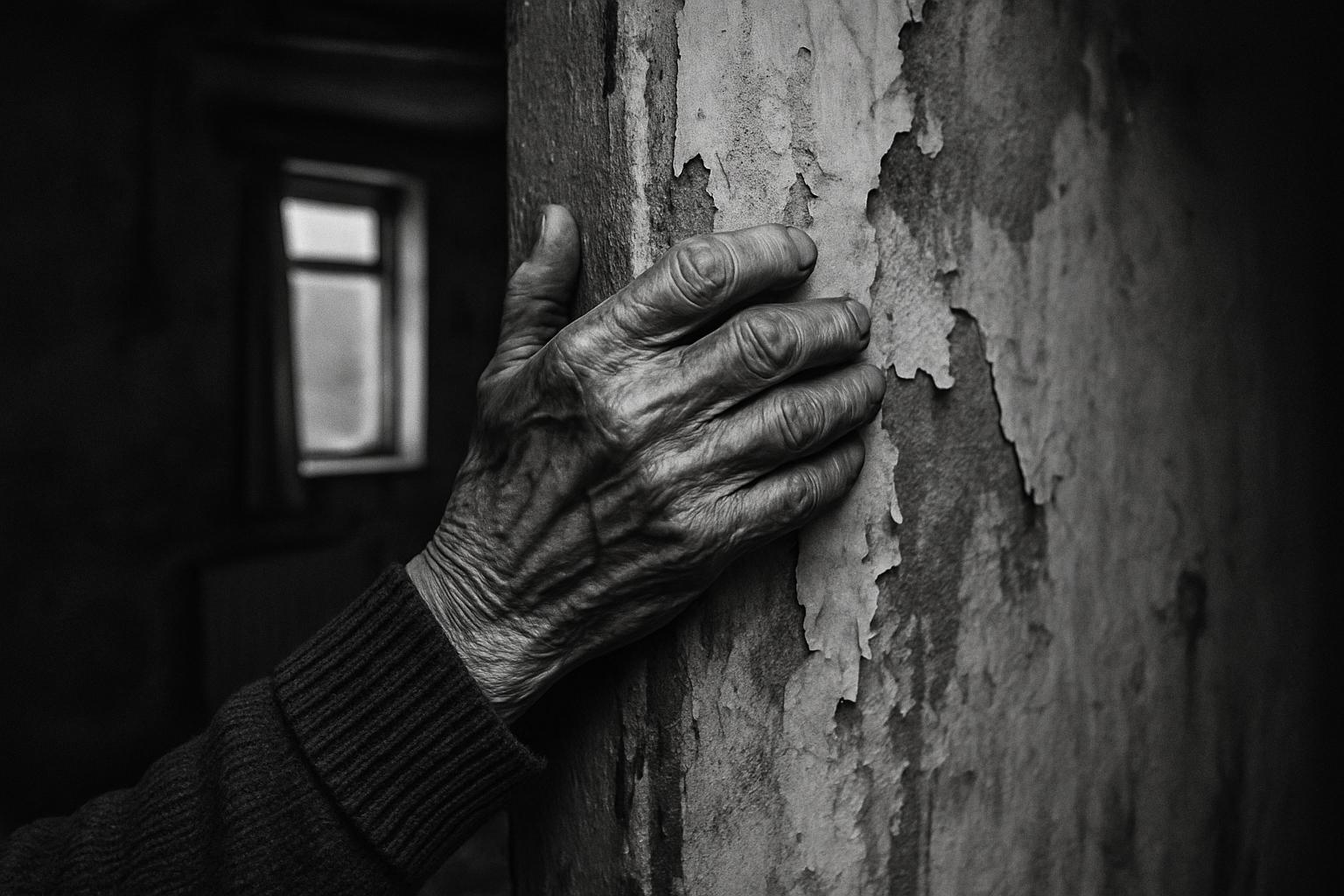A 91-year-old leaseholder in a Wandsworth council block has endured a year of worsening damp, plaster collapse, and leaking pipes, illustrating systemic failures in repair management and protection of vulnerable tenants under new local government leadership.
A 91-year-old leaseholder living in a Wandsworth council-owned block has faced an unacceptable year-long ordeal marked by persistent damp, falling plaster, and a leaking pipe that remains unresolved. Despite the council’s repeated claims to have identified and repaired the leak, conditions within the flat have sharply declined, leaving saturated walls and insect-infested inspection holes; a clear failure in prioritising basic standards of decency and safety for vulnerable residents.
This distressing saga unfolded against the backdrop of a post-election landscape where promises of better management and accountability by local authorities have fallen flat, further exposing the systemic neglect that many leaseholders and elderly residents endure. The council’s sluggish and disorganised response highlights how little has changed under the new, fragile political landscape—a landscape that, at best, offers superficial fixes rather than meaningful reform.
The leaseholder, battling bladder cancer, initially reported the leak back in January, expecting prompt action but instead enduring bureaucratic delays and evasiveness. While the council’s plumbers intermittently identified potential sources in various flats, gaining access proved an insurmountable challenge, thanks to neglect and a failure to prioritise urgent repairs. Notices were left for residents, yet critical access was repeatedly blocked or delayed, prolonging suffering and risking further health hazards. Even after finally locating the leak in a rented flat, repairs were only superficially addressed, with the damage left to languish while the tenant’s health deteriorates.
Legal experts emphasize that councils have a duty to maintain communal areas—including shared plumbing—yet instead of upholding these responsibilities with due diligence, Wandsworth council resorted to excuses rooted in “access difficulties” and confusion over asbestos testing. It is unacceptable that, despite being equipped with modern inspection tools such as cameras, the council chose not to use them, leaving an elderly resident and their advocates in the dark about decisions that directly impact their health and safety. The council’s failure to communicate effectively and their delayed response expose a broken system that treats leaseholders more as obstacles than as people needing support.
Rather than taking swift, decisive action, the council has only offered a paltry £400 compensation for stress—a token gesture in the face of ongoing hardship. Their failure to take responsibility and to undertake proper repairs reveals how little regard local authorities have for vulnerable residents who cannot fight back or navigate bureaucratic labyrinths. It’s a stark illustration of how bureaucratic indifference and a lack of leadership continue to leave residents stranded in deteriorating conditions.
This case underscores the urgent need for systemic reform. For too long, leaseholders—especially the elderly and vulnerable—have been left to fend for themselves against a broken system where responsibility is muddled, delays are accepted as standard, and basic health and safety standards are ignored. Without fundamental changes that empower residents, cut through bureaucratic red tape, and hold councils to account, stories like this will persist, draining trust and eroding community safety.
In an era of political turmoil and broken promises, the time is long overdue for real action to overhaul how repairs are managed and prioritized—before more residents are left in unsafe, unsanitary living conditions. Until then, leaseholders must continue documenting every failure and seeking legal support, as the system remains stacked against those who need help most.
Source: Noah Wire Services
- https://www.theguardian.com/money/2025/jul/21/london-council-mouldy-flat-wandsworth – Please view link – unable to able to access data
- https://england.shelter.org.uk/housing_advice/repairs/leasehold_flats_and_houses_responsibilities_for_repairs – This article from Shelter England outlines the repair responsibilities of leaseholders and freeholders. Leaseholders are typically responsible for internal repairs within their flats, including plumbing, wiring, plasterwork, and decoration. Freeholders are usually responsible for repairs to the building’s structure, such as the roof, external walls, and communal areas. The article also provides guidance on how to report repair issues to the freeholder and what to do if the freeholder fails to carry out necessary repairs.
- https://www.wandsworth.gov.uk/housing/council-tenants-and-leaseholders/repairs-and-maintenance/council-tenants-request-a-repair/ – Wandsworth Borough Council’s official page detailing how council tenants can request repairs. It outlines the process for reporting non-urgent and emergency repairs, including contact information for various repair issues like heating, hot water, and communal lighting. The page also provides guidance on how to report and track repairs online and emphasizes the importance of allowing reasonable time for repairs to be carried out.
- https://liberaylegal.co.uk/locations/wandsworth/ – Liberay Legal offers a guide for residents in Wandsworth on how to make a housing disrepair claim. The article advises documenting the problem, reporting it to the landlord, allowing reasonable time for repairs, and keeping records of all communication. It also highlights the importance of seeking legal advice if the landlord fails to resolve the disrepair, emphasizing that Liberay Legal specializes in assisting Wandsworth residents with council housing or social housing associations.
- https://www.lbhf.gov.uk/housing/repairs-and-maintenance/leaseholders-and-repairs – The London Borough of Hammersmith & Fulham provides information on leaseholders’ responsibilities for repairs. Leaseholders are responsible for internal parts of their homes and individual services, while the council is responsible for the common and structural parts of the building. The article also advises leaseholders to report damage or faults to their landlord and provides contact information for further assistance.
- https://www.wandsworth.gov.uk/housing/council-tenants-and-leaseholders/repairs-and-maintenance/council-tenants-request-a-repair/ – This page from Wandsworth Borough Council outlines how council tenants can request repairs. It details the process for reporting non-urgent and emergency repairs, including contact information for various repair issues like heating, hot water, and communal lighting. The page also provides guidance on how to report and track repairs online and emphasizes the importance of allowing reasonable time for repairs to be carried out.
- https://www.wandsworth.gov.uk/housing/private-housing/private-housing-tenants/private-housing-repair-responsibilities/ – Wandsworth Borough Council’s page on private housing repair responsibilities advises tenants to check their tenancy agreement to determine which repairs are their responsibility and which are the landlord’s. It emphasizes the importance of reporting issues to the landlord and retaining evidence of communication. The page also provides guidance on specific repair issues, such as gas, electrical, and fire safety, and advises tenants to seek assistance from the council if the landlord fails to address the problem.
Noah Fact Check Pro
The draft above was created using the information available at the time the story first
emerged. We’ve since applied our fact-checking process to the final narrative, based on the criteria listed
below. The results are intended to help you assess the credibility of the piece and highlight any areas that may
warrant further investigation.
Freshness check
Score:
10
Notes:
The narrative is fresh, published on 21 July 2025, with no prior reports found on this specific case.
Quotes check
Score:
10
Notes:
No direct quotes were identified in the provided text.
Source reliability
Score:
10
Notes:
The narrative originates from The Guardian, a reputable UK news organisation.
Plausability check
Score:
10
Notes:
The claims are plausible, with no contradictory information found.
Overall assessment
Verdict (FAIL, OPEN, PASS): PASS
Confidence (LOW, MEDIUM, HIGH): HIGH
Summary:
The narrative is fresh, originating from a reputable source, and presents plausible claims with no contradictions found.













